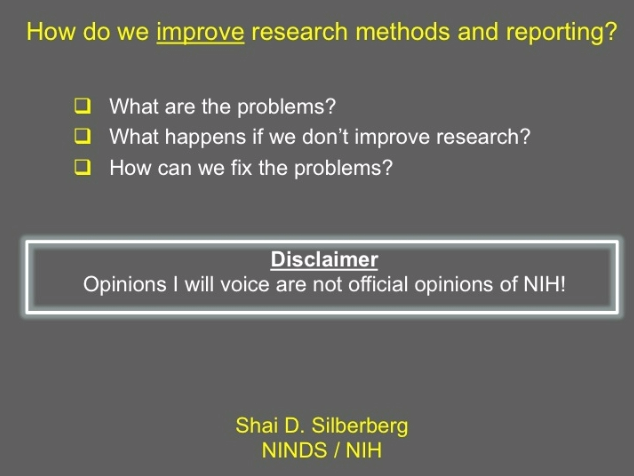Follow this module to learn about the high-level principles of scientific integrity
After completing it, you should be able to:
- Explain why research integrity and good data quality is important in (non-regulated) research
- Explain which different risk areas are related to (lack of) scientific integrity, including examples
- Name a number of common principles of research integrity, give examples of best practice and describe dilemmas for each principle
Core materials
Material 1 – Reproducibility
Study this material to learn about:
- the concepts of reproducibility and replicability
- potential solutions to improve reproducibility and replicability
Type: webinar
Duration: 60 minutes
Speaker: John Ioannidis, Standford University
Created by: NIH Big Data 2 Knowledge Training Coördinating Centre
Bonus materials
Bonus 1 – What is research integrity?
Study this material to learn about:
- How fellow researchers feel about the importance of research integrity
Type: knowledge clip
Duration: 6 minutes
Created by: The embassy of good science
Study this material to learn about:
- The problem of non-reproducibility in preclinical research, its causes (including types of bias) and consequences for translating findings from bench to bedside.
Type: Webinar
Speaker: Shai D. Silberberg, NIH
Duration: 40 minutes
Created by: American Physiology Society (part of the 2015 Reproducibility in Research Symposium)
Additional resources
- Symposium report: Reproducibility and reliability of biomedical research: improving research practice (The Academy of Medical Sciences, 2015)
- website: PRINTEGER
- website: VIRT2ue
- website: The embassy of good science
Was anything missing? Would you like to suggest another training material or resource? Please click here for our suggestion form.
